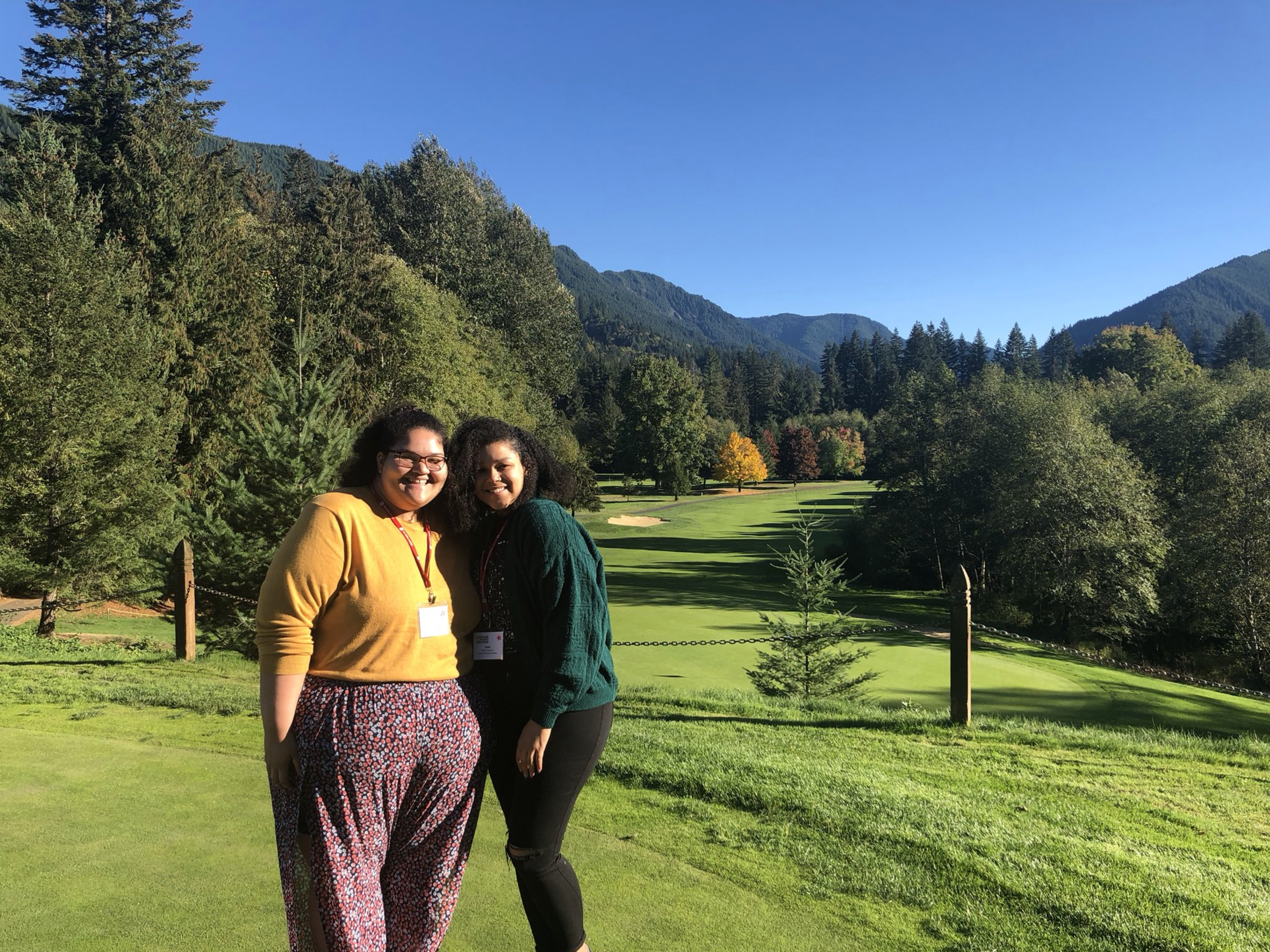
Conferences enhance education
By Micci Abbott and Miki Kennerly
Having recently returned from the Journalism and Women Symposium (JAWS) Conference and Mentoring Project (CAMP), we are realizing that CAMP was an experience we will never forget and that all students should be given such an opportunity.
It was so rewarding to be surrounded by women who share the same passion for diverse media and accurate representation in news. Being surrounded by these awe-inspiring, accomplished women in journalism fostered an atmosphere of support that allowed us to see exactly how far our education at the University of South Dakota can take us.
At CAMP, breakout speakers Elise Hu and Jemele Hill spoke of the trials and tribulations they as women in journalism have faced and will continue to face in the workplace in our society. Taking this into account, JAWS’ focused sessions allowed us to learn new tactics straight from the experts on how to navigate the ever-changing world of media.
With help from her colleagues, Yumi Wilson former LinkedIn curator and president of JAWS, implemented an event focused on building a personal brand, and most specifically, how to create your own personal brand statement.
As an employer, Wilson noted that the creation of this statement allows future employers to understand what a candidate’s goals are as well as what specific and unique skills one might have. With this knowledge, there is no doubt that this will make applying for positions after graduation a more streamlined process.
Critical Frequency Cofounder Amy Westervelt’s session on podcasting was extremely noteworthy. As members of the KAOR Radio staff, Westervelt’s advice could not only help improve our existing radio shows but also help us to build our audience so that we can take this one step further, even after graduation.
In a session led by Democracy Fund Senior Consultant Sheila Solomon, we discussed intentional diversity and what that should look like in 2018. We learned strategies on curating an inclusive newsroom culture, recruiting for diversity in journalism and creating truly representative news stories.
Additionally, at the plenary session sponsored by the American Press Institute, we were instructed to take part in an empathy exercise. We were given a sheet of paper with instructions to fill in sections that included our name, religious background, most prized possession, personal values, and race/ethnicity.
We then crossed out two sections that we believed to be unimportant to us. After, we traded with a partner, and they proceeded to cross out two more boxes that they believed were unimportant to us. The goal of this exercise was to remind journalists that there is always more to the story than what appears on the surface. As journalists, we have no idea what is important to a person, and we must take this into account in every interaction with the public.
In addition to the learning of new and precise knowledge, conferences are incomparable networking opportunities that give students the chance to break out of their comfort zone and communicate with like-minded people in their field. As condensed learning experiences, they are able to stand out in a student’s mind more than typical coursework.
This makes conferences a valuable, yet under-utilized tool of higher education.
However, conferences aren’t only great for students. They also provide an opportunity for universities to invest in the people they educate. Providing conference funding for students not only enriches their academic experience but also encourages professional success.
Increasing opportunities for students to attend conferences does not only enhance knowledge gained in the classroom but also provides attendees as future professionals with invaluable skills and experience so many employers desire.
In this case, allowing students to travel to conferences and act as representatives of the university demonstrates to other institutions that the university believes in its students and will support them in all of their endeavors, even when a student enters the workplace.
Everyone benefits from the conference experience if it is afforded to them. Universities should provide clear direction to students on how to access funding, what other resources are available to them, as well as the benefits of attendance. Because a large number of students are unaware of this process, these educational opportunities are missed and overlooked.
Providing information on how to go about this process in a more detailed and accessible way is a great start to opening up these opportunities to any student who may be interested in supplementing their education in ways outside of the classroom.
Attending CAMP was an experience we will never forget because it is one we will never stop benefitting from. The people we met, the things we learned, and the experience we gained will benefit us for our entire careers.
Though being there was amazing, returning home to share the knowledge we gained for the betterment of our department and fellow students have been one of the best parts.
If you’re looking to attend a conference and would like the University’s assistance with funding, contact your department chair.
